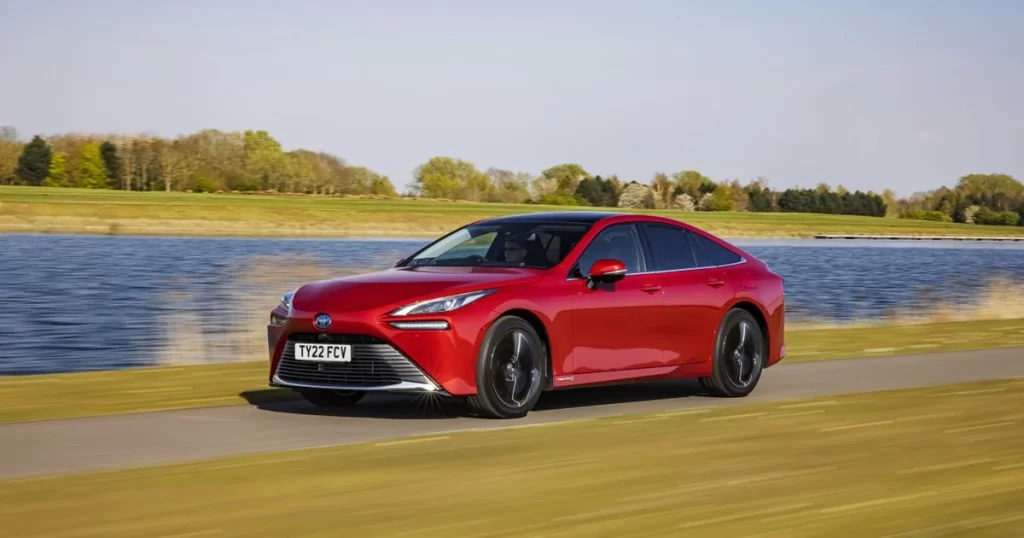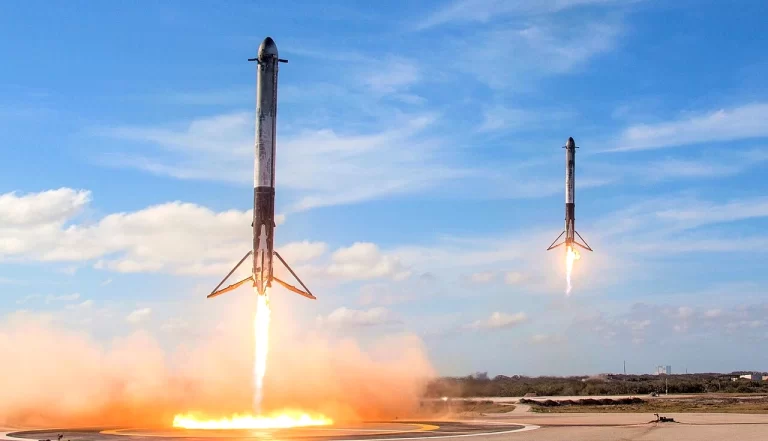Toyota, a global leader in the automotive industry, has been at the forefront of innovative technologies, including hybrid and electric vehicles. One of Toyota’s significant investments in recent years is in hydrogen fuel cell technology. This technology offers a promising alternative to conventional fossil fuels and battery electric vehicles by providing zero-emission transportation with quick refueling times and long driving ranges. This case study explores Toyota’s strategic investments, key projects, challenges, and future outlook in hydrogen fuel cell technology, highlighting its commitment to sustainable mobility.
Overview of Hydrogen Fuel Cell Technology
Hydrogen Fuel Cell Technology converts hydrogen gas into electricity through a chemical reaction with oxygen, producing water vapor as the only emission. This technology has the potential to revolutionize the transportation sector by offering a sustainable and efficient energy source. It provides several advantages, such as high energy efficiency, rapid refueling, and the ability to power large vehicles over long distances. However, widespread adoption faces challenges, including high costs, infrastructure limitations, and energy-intensive hydrogen production methods.
Toyota’s Investment Strategy
Early Adoption and Research
Toyota began exploring hydrogen fuel cell technology in the early 1990s, recognizing its potential to reduce carbon emissions and dependence on fossil fuels. In 2014, Toyota launched the Mirai, one of the world’s first mass-produced hydrogen fuel cell vehicles (FCVs). This marked a significant milestone in Toyota’s commitment to hydrogen technology, positioning the company as a pioneer in the FCV market.
Key Investments and Partnerships
Toyota’s strategy involves substantial investments in research and development, infrastructure, and strategic partnerships:
- Research and Development: Toyota has invested billions in advancing hydrogen fuel cell technology. The company focuses on enhancing fuel cell efficiency, reducing production costs, and improving the overall performance of FCVs. In recent years, Toyota has unveiled the second-generation Mirai, which features a more efficient fuel cell system, a longer range, and a more attractive design.
- Infrastructure Development: One of the critical challenges for hydrogen fuel cell technology is the lack of refueling infrastructure. Toyota actively collaborates with governments, energy companies, and other stakeholders to expand hydrogen refueling stations globally. In Japan, Toyota is part of the Japan Hydrogen Mobility initiative, which aims to develop a comprehensive hydrogen refueling network.
- Strategic Partnerships: Toyota has entered into numerous partnerships to promote hydrogen fuel cell technology. For instance, it collaborates with BMW to develop fuel cell systems and with Shell to expand hydrogen refueling stations. Toyota’s partnership with the energy company ENEOS focuses on exploring hydrogen production using renewable energy sources.
Toyota’s strategic allocation of investments in hydrogen fuel cell technology reflects a comprehensive approach to advancing a sustainable hydrogen economy. The largest share of investment goes towards vehicle development, including the iconic Mirai and SORA buses, which are pivotal in demonstrating the viability of hydrogen as a clean energy source for transportation. Infrastructure development, particularly hydrogen refueling stations, also represents a significant portion of the investment, highlighting Toyota’s efforts to address one of the primary barriers to hydrogen adoption. Investments in commercial applications like heavy-duty trucks and green hydrogen production underscore Toyota’s commitment to diversifying hydrogen use across different sectors, reinforcing its vision of a zero-emission future. This balanced investment strategy ensures that Toyota remains at the forefront of hydrogen innovation, supporting its broader environmental goals and enhancing its leadership in the industry.
Expansion Beyond Passenger Vehicles
Toyota’s investment in hydrogen fuel cell technology extends beyond passenger cars. The company is exploring applications in buses, trucks, and other heavy-duty vehicles where hydrogen fuel cells offer distinct advantages over battery electric powertrains. For example, Toyota has introduced the SORA hydrogen fuel cell bus and is working on fuel cell-powered trucks in collaboration with Hino Motors and other industry leaders.
Challenges and Obstacles
Despite Toyota’s progress, there are several challenges associated with the adoption of hydrogen fuel cell technology:
- High Costs: The production of hydrogen and fuel cell systems is still expensive compared to conventional and battery electric vehicles. Toyota continues to invest in cost reduction strategies, including mass production techniques and material advancements.
- Infrastructure Limitations: The lack of hydrogen refueling stations remains a significant barrier to widespread adoption. Toyota’s investments in infrastructure development are crucial, but the pace of expansion is slow and requires substantial support from governments and other stakeholders.
- Energy Efficiency Concerns: The process of producing, storing, and transporting hydrogen can be energy-intensive, often relying on fossil fuels. Toyota is exploring green hydrogen production methods, such as electrolysis powered by renewable energy, to address these concerns.
Future Outlook and Strategic Vision
Toyota envisions a hydrogen society where hydrogen fuel cell technology plays a central role in powering not only vehicles but also various industrial and residential applications. The company’s long-term strategy includes:
- Scaling Production: Toyota aims to scale the production of fuel cell systems to reduce costs and improve accessibility. The company plans to manufacture hydrogen fuel cells for other automakers and industries, positioning itself as a key supplier in the hydrogen ecosystem.
- Expanding Hydrogen Ecosystem: Toyota is working on expanding the hydrogen ecosystem by integrating hydrogen solutions in logistics, public transport, and stationary power generation. This approach aligns with Toyota’s broader vision of carbon neutrality by 2050.
- Innovation and Collaboration: Toyota continues to innovate in fuel cell technology and strengthen collaborations with global partners to accelerate the adoption of hydrogen fuel cells. By leveraging its expertise and market influence, Toyota aims to overcome existing challenges and drive the transition to a sustainable, hydrogen-based economy.
Conclusion
Toyota’s investment in hydrogen fuel cell technology demonstrates its commitment to pioneering sustainable transportation solutions. Through substantial investments in R&D, strategic partnerships, and infrastructure development, Toyota is addressing the challenges associated with hydrogen fuel cells. As Toyota continues to innovate and expand its hydrogen initiatives, it is poised to play a significant role in the future of zero-emission transportation, paving the way for a cleaner, greener world.
Key Takeaways
- Toyota has invested heavily in hydrogen fuel cell technology, launching the Mirai and expanding into buses and trucks.
- Key challenges include high costs, limited infrastructure, and the energy-intensive nature of hydrogen production.
- Toyota’s long-term vision includes scaling production, expanding the hydrogen ecosystem, and achieving carbon neutrality by 2050.




